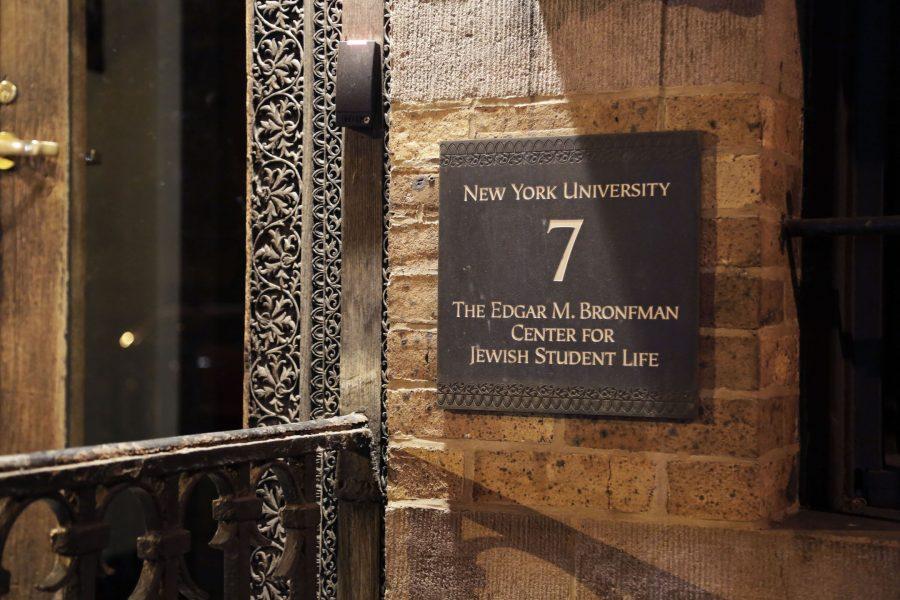Holocaust Survivor Speaks at Panel Commemorating Elie Wiesel
To honor Elie Wiesel, a well renowned author of several Holocaust novels, the Bronfman Center hosted a panel with Holocaust survivor Mirian Adler for students to broaden their perspectives.
February 6, 2017
In honor of Nobel Peace Prize winner and Holocaust writer Elie Wiesel, a panel was hosted by Realize Israel, CAS and the Bronfman Center for Jewish Student Life on Thursday.
The panel — named after Wiesel’s autobiographical trilogy “Night, Dawn, Day” — was hosted on the last day of Holocaust Remembrance Week and featured a dialogue between Holocaust survivor Mirian Adler and NYU Medical School Assistant Professor Allen Keller.
CAS Dean Gabrielle Starr, a predominant organizer of the event, said that the idea for the event was inspired by a discussion with Executive Director of the Bronfman Center Rabbi Sarna.
“The idea for me for an event to honor Wiesel began this summer, on the night he passed away,” Starr said. “I was emailing with Rabbi Sarna, and we both were sharing in mourning his loss. We wanted to do something, and decided to wait until fall.”
Starr said that in early fall, Gallatin junior and Realize Israel President Jacob Sternberg approached her about working together on a Holocaust Remembrance event, and Sternberg, along with other students — Starr’s CAS team and the Bronfman Center’s Dana Levinson — began working on ideas.
Holocaust survivor Mirian Adler was invited to the university by her great-grandson Ari Spitzer, a Realize Israel member. Adler is a Jewish author and activist who speaks about her experience of the Holocaust at synagogues, Jewish high schools, universities and other venues.
“My grandmother was explaining to me once about her childhood,” Spitzer said. “My grandma was born two years after the war, but all the people that she grew up with — they all knew that everyone’s parents were a part of [the Holocaust], but no one ever speaks of it. It was very taboo.”
During the event, Adler gave a speech about her life in a ghetto, in Auschwitz and on the Death March. Spitzer said his great-grandmother overcame many difficulties to share her phenomenal story of survival and resilience.
Spitzer also said that speaking about Holocaust experiences is very rare among survivors. He said that they feel embarrassed to face the turbulent time during which their families were lost.
“It was difficult for her physically to leave her home and come out to do something like this,” Spitzer said. “Also mentally, it’s very tough, because when she speaks about this, she has days — weeks — of nightmares. But she does it because she knows it’s important.”
Sternberg is one of the core student organizers who worked closely with the Bronfman Center on this event. As a grandson of a Holocaust survivor, he also said that it is rare to hear first-person accounts of the Holocaust.
“When it comes to the Holocaust, there are so many documentaries, research papers [and] documentations of exactly what happened and who was killed,” Sternberg said. “But to really see and hear from someone who had her siblings killed and her family taken away, who witnessed with her own eyes the atrocities, the destruction and the darkness of what the Holocaust is incredibly powerful. It’s something we don’t experience very often today.”
Senior Associate for Leadership and Strategic Partnerships Dana Levinson is a staff member at the Bronfman Center, and she coordinated the event closely with Realize Israel. Levinson said that Adler has a phenomenal story of survival and resilience, and that her shared stories were extremely powerful.
“Hemmerdinger Hall was full with students, families, professors and alumni of all backgrounds and ages,” Levinson said. “I think the whole room was incredibly inspired by the courage and resilience of Miriam Adler, who in her sheer will to survive and never forget who she was encouraged such hope and strength in these uncertain times.”
Sternberg said the most impressive part of Adler’s talk was the message she sent to the audience.
“Through the hatred, destruction and darkness she experienced in the death camp of Auschwitz, her message is just to be a mensch, to be an upstanding, honest citizen, to not judge someone by the way they look,” Sternberg said. “This is a simple message, but at this moment, it is so powerful.”
A version of this article appeared in the Monday, Feb. 6 print edition. Email Coco Wang at [email protected].










































































































































